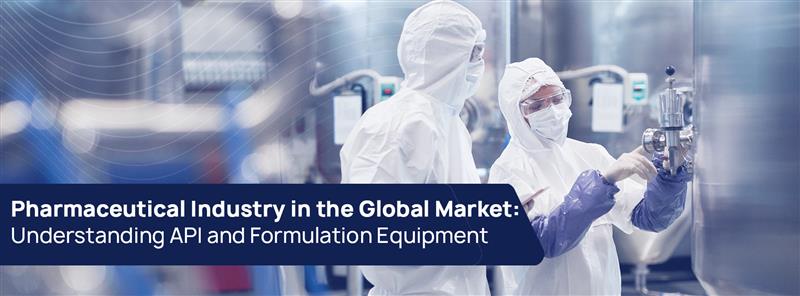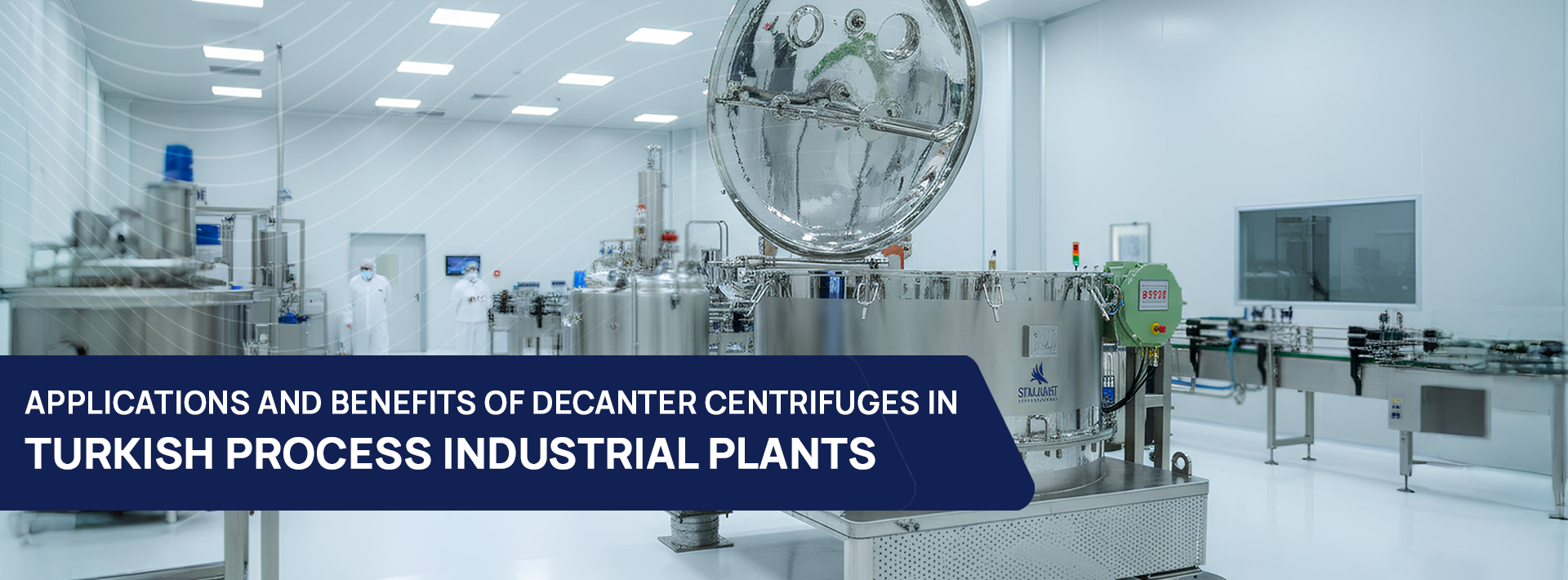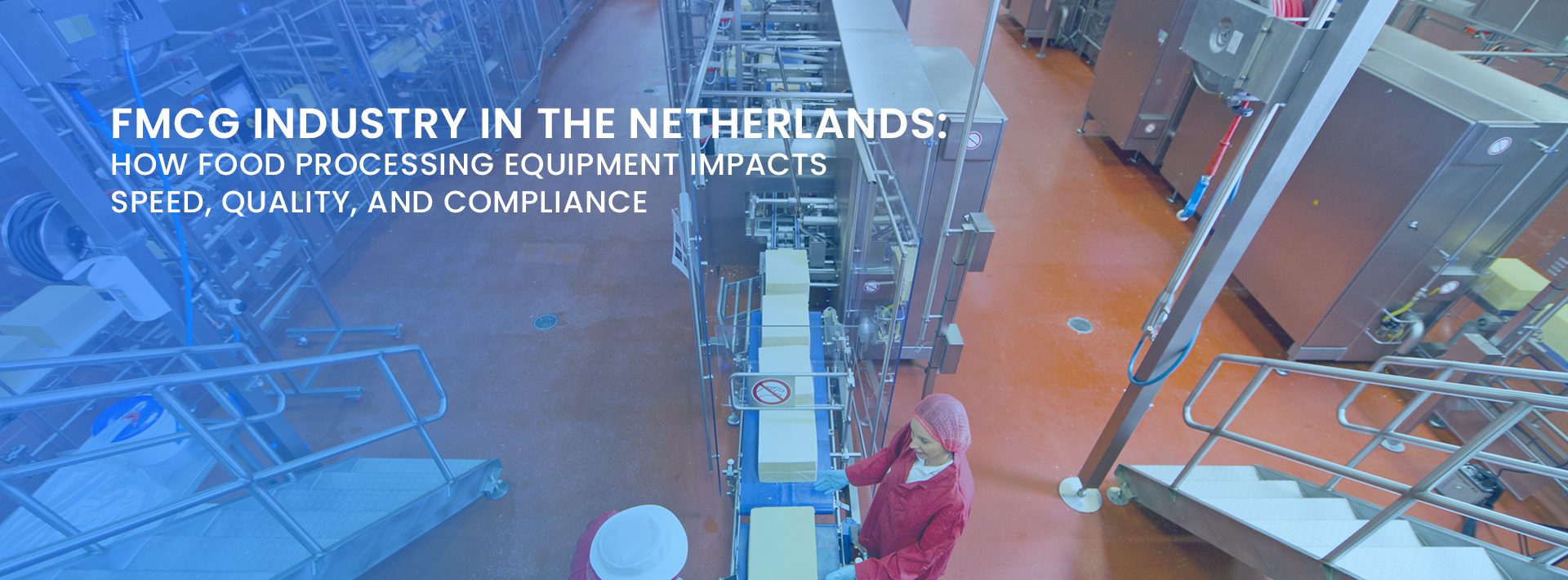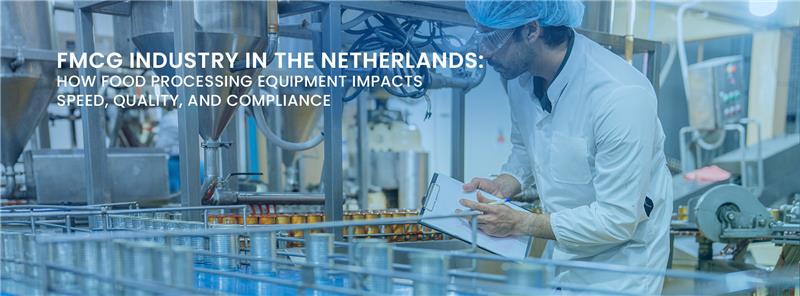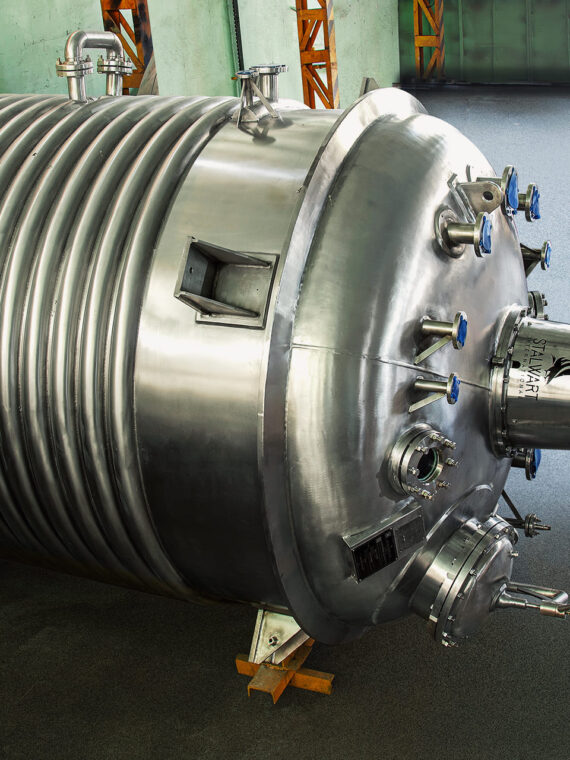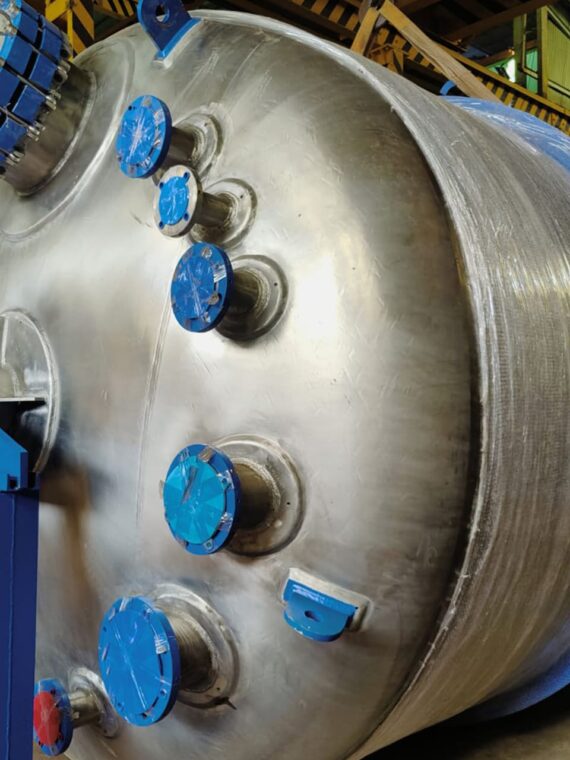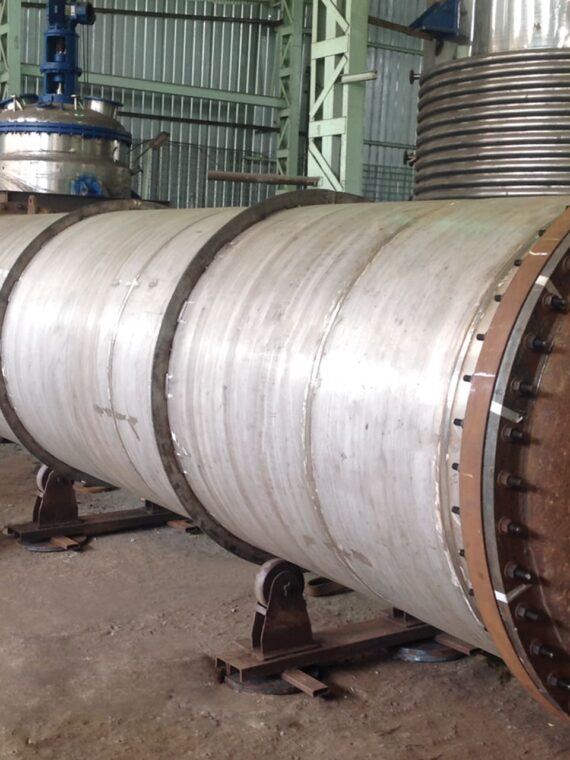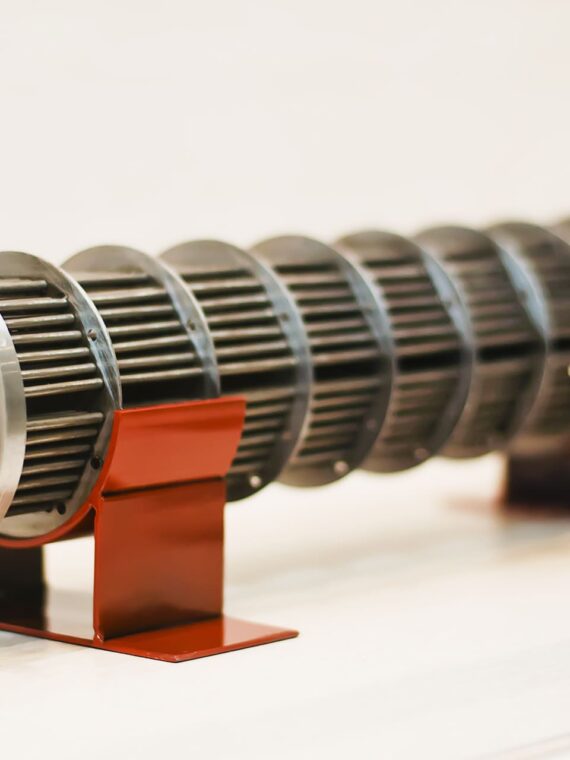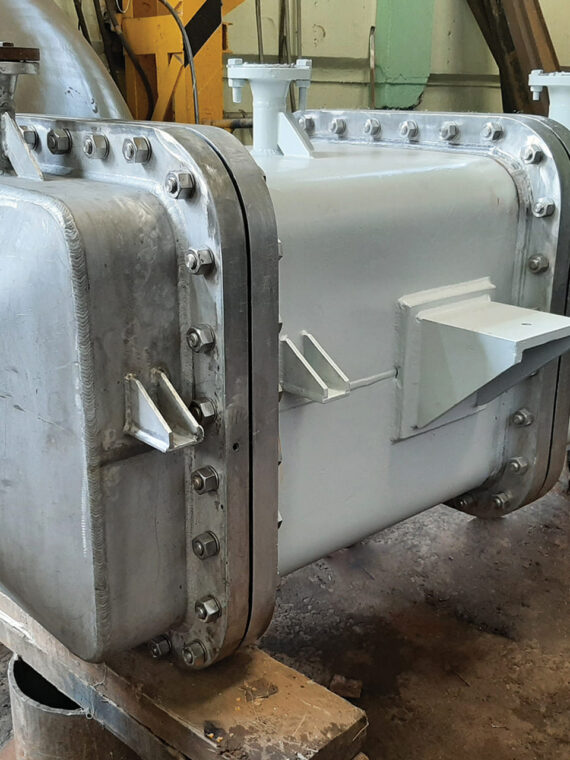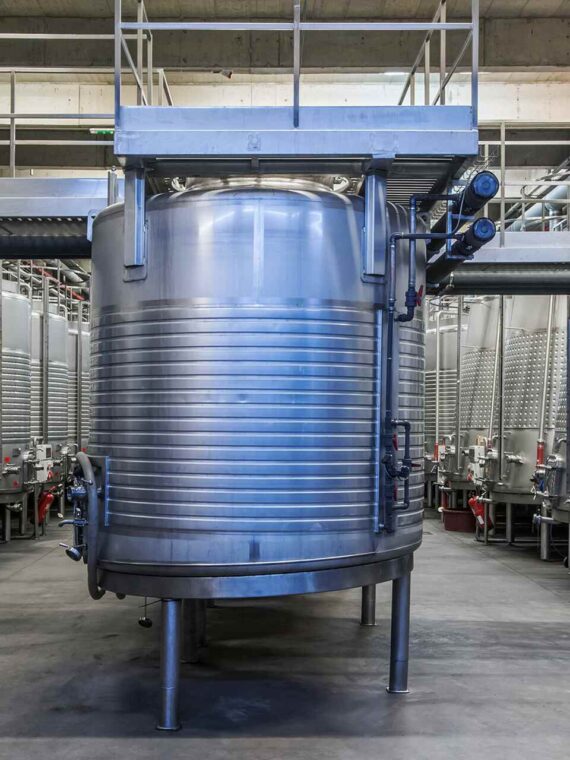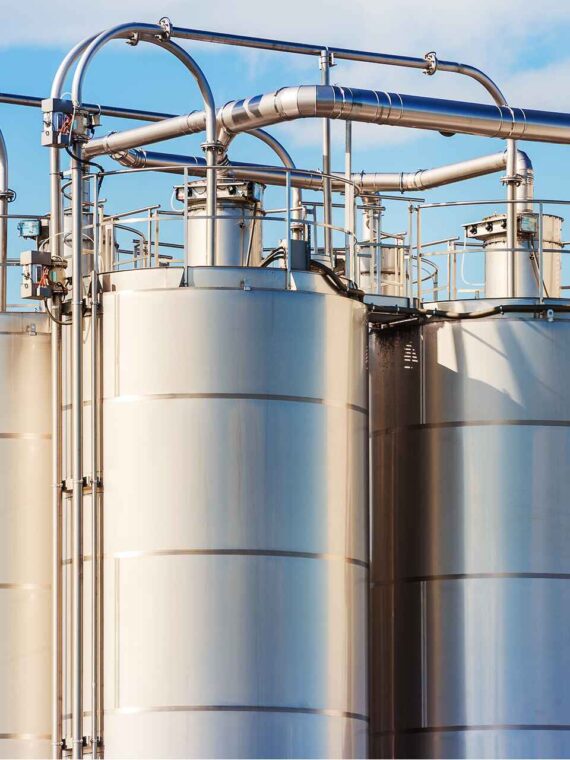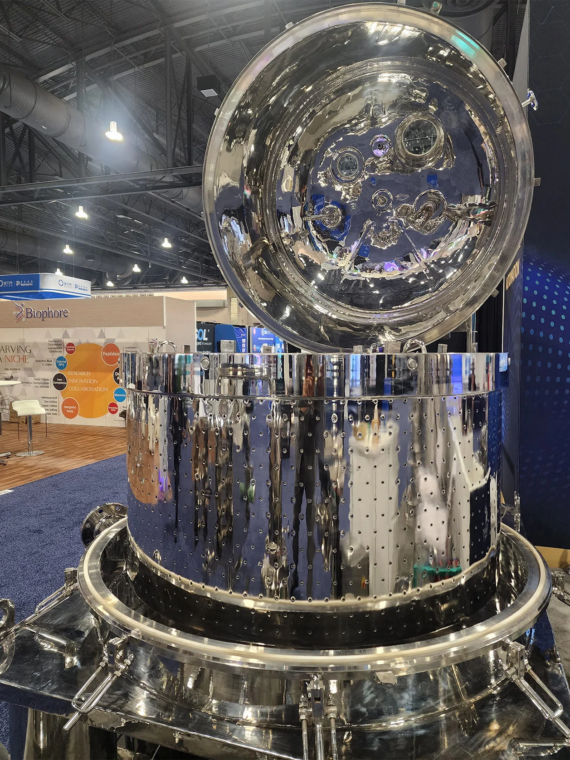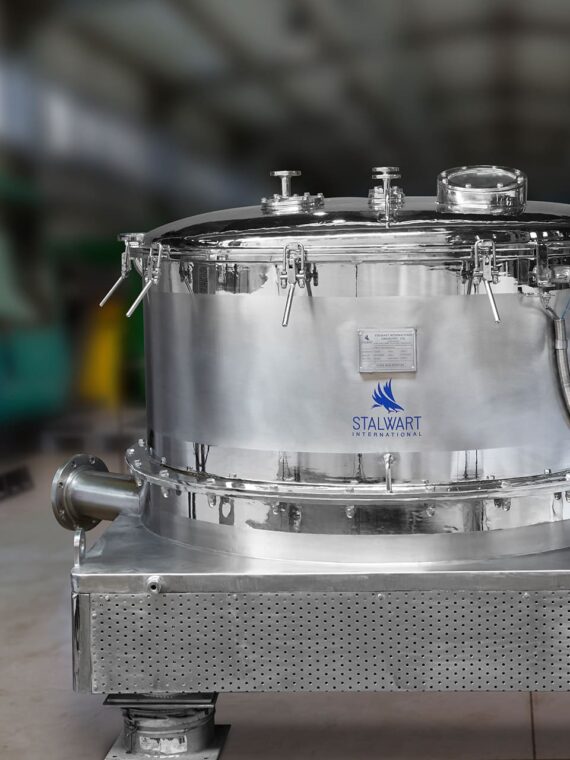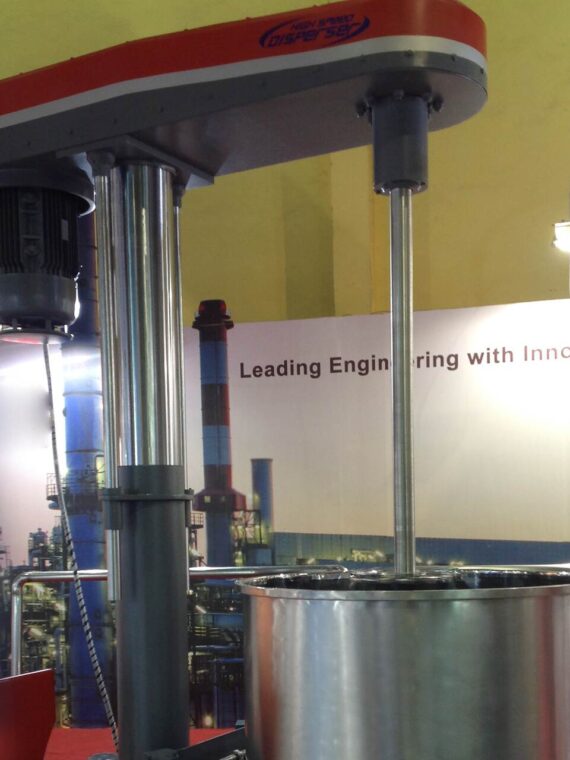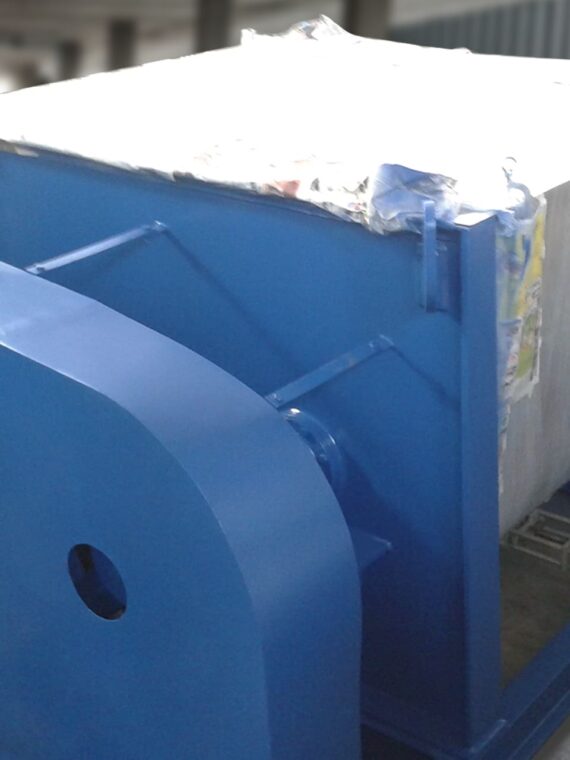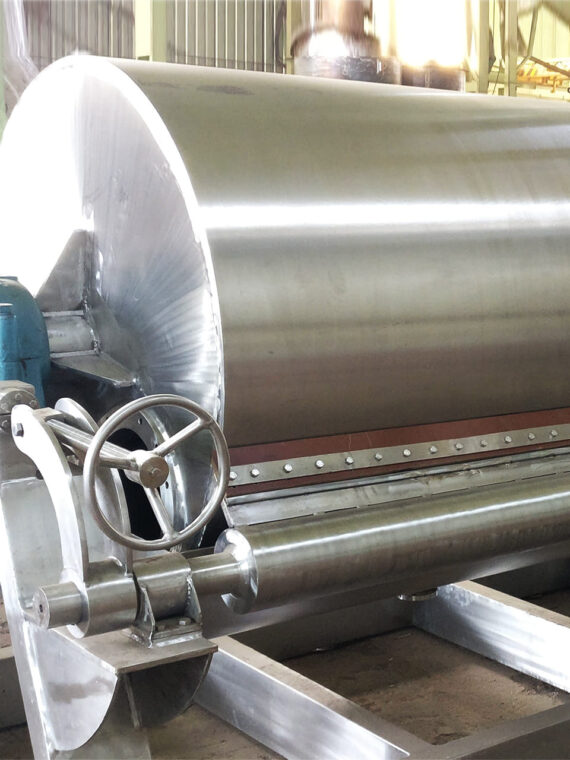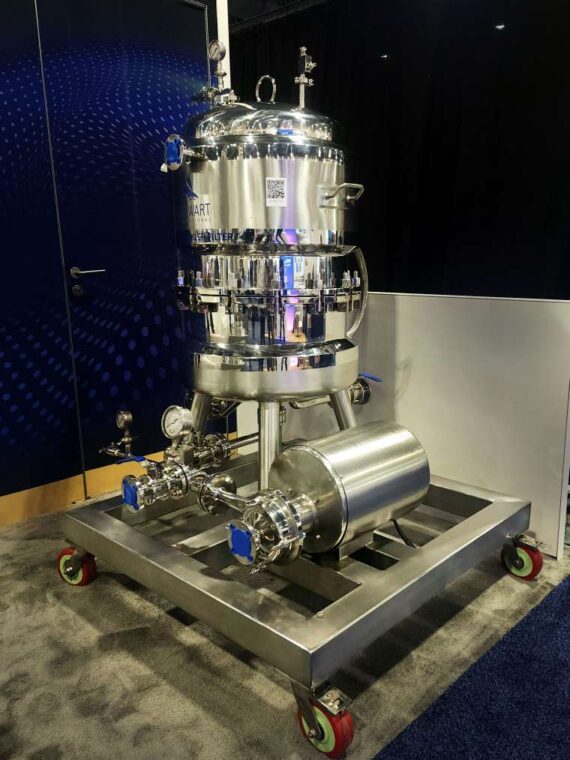The pharmaceutical industry is one of the most important industries to the economy of the world, not only in the healthcare sector but also in industrial innovation, trade and employment. The global pharmaceutical industry is expected to exceed USD 1.6 trillion by 2030, driven by the increasing healthcare demands, evolving biotechnology and the need to have cost-effective medicines.
The core of the pharmaceutical manufacturing comprises two types of equipment, namely API (Active Pharmaceutical Ingredient) equipment and formulation equipment. These two units constitute the core of medicine manufacture, wherein raw materials are converted into safe, efficacious and ingestible dosage forms.
Core Equipment in Pharmaceutical Manufacturing
The backbone of pharmaceutical manufacturing comprises two major categories of equipment: API (Active Pharmaceutical Ingredient) equipment and formulation equipment. Together, these units transform raw materials into safe, effective, and patient-friendly dosage forms. To meet global quality and compliance standards, many companies rely on cGMP equipment manufacturers in India, who provide advanced, regulatory-compliant solutions that ensure safety, consistency, and efficiency across every stage of pharmaceutical production.
1. API (Active Pharmaceutical Ingredient) equipment
The Active Pharmaceutical Ingredient (API) is the main ingredient that causes the effect of the medicine. Manufacturing APIs is a complicated process, and it needs highly specialized equipment that performs chemical synthesis, purification, and processing under stringent quality and regulatory guidelines.
Typical API manufacturing equipment
- Reactors: They are used to facilitate the chemical synthesis to result in the active compound.
- Crystallizers: would improve purity and endow particle characteristics of the synthesized product.
- Centrifuges: Separate the solids and liquids following the synthesis.
- Filtration Systems: Separate impurities to allow high purity.
- Drying Equipment: Remove moisture in purified API.
- High-Speed Dispersers: They are used to mix well at intermediate processes.
Common API Production Process
- Introduction of raw materials into reactors.
- The API ingredient is synthesized chemically
- Purification and uniformity are improved by Crystallization.
- The processes of centrifuges and filtration eliminate by-products and impurities.
- The drying apparatus eliminates the moisture to leave a stable and potent API.
Such a rigorous process ensures production of APIs that are safe, efficacious, and that conform to the regulatory standards of various countries across the globe, such as the US FDA, EMA and WHO.
2. Formulation Equipment
Once APIs are produced, they are transformed into more practical forms of medication in the form of pills, capsules, ointments, syrups, or injections. This requires yet a different type of machinery, which is called formulation equipment at large.
Normal Formulation Equipment
- Mixing Vessels: APIs and excipients are mixed to form homogenous mixtures in a mixing vessel.
- Tablet Compression Machines: Tablets are manufactured under pressure, and a combination of materials is compressed
- Encapsulating machines: Fill APIs in capsules
- Coating Equipment: coats tablets with protective, functional or aesthetic coating.
- Packaging Machinery: Put the final products in packages that can be understood by the consumer.
- High-Speed Dispersers: They offer consistency in semi-solid and liquid food products.
Typical Formulation Process
- Addition of raw materials like APIs and excipients is done.
- Homogeneity is achieved by mixing and blending.
- Compression or encapsulation makes the blend into solid dosage forms
- Coating (when necessary) increases stability, enhances protection of the drug or patient compliance.
- Packaging machines are used in processing products to be distributed and sold.
This step is essential for the correct dose delivery, the safety of patients, and the stability of the product.
You May Also Like: Pharmaceutical Reactor Design Explained
International Market Insight
The pharmaceutical sector is gaining market wide at a very high rate in both the developed and emerging markets. Some of the trends that are defining the sector are as follows:
- Increasing Demand of Generics and Biosimilars: Low-priced substitutes to branded drugs are causing a surge in India, China and Latin America.
- Technological Advancements: Constant manufacturing, mechanization and digitalized monitoring of quality are reshaping the efficiency of pharmaceutical equipment.
- Strict regulatory provisions: The world is moving towards strict regulatory requirements that require the purchase of advanced process equipment.
- Outsourcing, CDMOs (Contract Development and Manufacturing Organizations): As pharmaceutical companies continue to outsource API and formulation manufacturing, the potential for equipment suppliers to gain business has grown globally.
- Emphasis on Sustainability: Equipment designs that are energy efficient and environmentally sustainable are becoming a necessity to achieve sustainability goals in the world.
Based on market statistics, the global pharmaceutical equipment market would continue to expand at a steady rate, with demand in API manufacturing equipment systems and formulation-based systems motivating investments in developed economies as well as emerging economies.
You May Also Like: Importance of cGMP in the Pharmaceutical Industry
The role of India and Emerging Markets
India is also among the largest suppliers of generic medicines and APIs across the world. The Indian manufacturing industry is well established, and the pharmaceutical companies and equipment makers are part of the global supply chain with a competitive cost advantage. With Saudi Arabia, Europe and North America investing more in formulation plants and biotechnology, collaborations with Indian manufacturers are on the rise, and this is solidifying India’s position in the global pharmaceutical industry.
Conclusion
The pharmaceutical industry is one of the most innovative fields in healthcare, and its prosperity is dependent on the API and formulation equipment. This equipment includes reactors and crystallizers that make APIs and mixing vessels and tablet compression machines that transform them into final dosage forms. Without this safety, efficacy, and compliance would be compromised.
The need to meet the increasing healthcare needs, technological advancement, and supply chain globalization will increase the demand for sophisticated equipment used in the pharmaceutical manufacturing processes. Countries such as India are well placed to contribute not only in the manufacturing of APIs but also in chemical process equipment manufacturing for pharmaceutical industry, ensuring the supply of cost-effective and reliable equipment to facilitate the growth of the pharmaceutical industry in the world.
FAQs
1. What is API and formulation in the pharmaceutical industry?
In pharmaceuticals, API (Active Pharmaceutical Ingredient) is the biologically active component of a drug that produces the intended effect. Formulation, on the other hand, is the process of combining the API with excipients (inactive substances) to create the final drug product in a usable form such as tablets, capsules, or injections.
2. What equipment is used in API manufacturing?
API manufacturing involves specialized equipment designed to handle chemical reactions, purification, and drying processes. Common API equipment includes reactors, centrifuges, dryers, filtration units, and separators. These machines are built to comply with cGMP (Current Good Manufacturing Practice) standards to ensure safety and quality.
3. What is the difference between API and drug formulation?
The API is the core ingredient responsible for the therapeutic effect, while drug formulation is the process of making the API consumable and effective for patients. For example, Paracetamol is an API, but when combined with binders and fillers to make a tablet, it becomes the formulated drug product.
4. Why is drug formulation important in pharma?
Drug formulation ensures that the API is delivered in the correct dose, stability, and form for patient use. It improves drug absorption, enhances stability, masks unpleasant tastes, and ensures patient compliance. Without proper formulation, even the most effective API cannot be safely or efficiently administered.
5. What is API equipment in pharmaceutical manufacturing?
API equipment refers to the machinery used to synthesize and process active pharmaceutical ingredients. This includes chemical reactors for synthesis, centrifuges for separation, dryers for moisture removal, and filtration systems. Such equipment plays a critical role in ensuring high-quality and pure APIs that meet regulatory standards.


